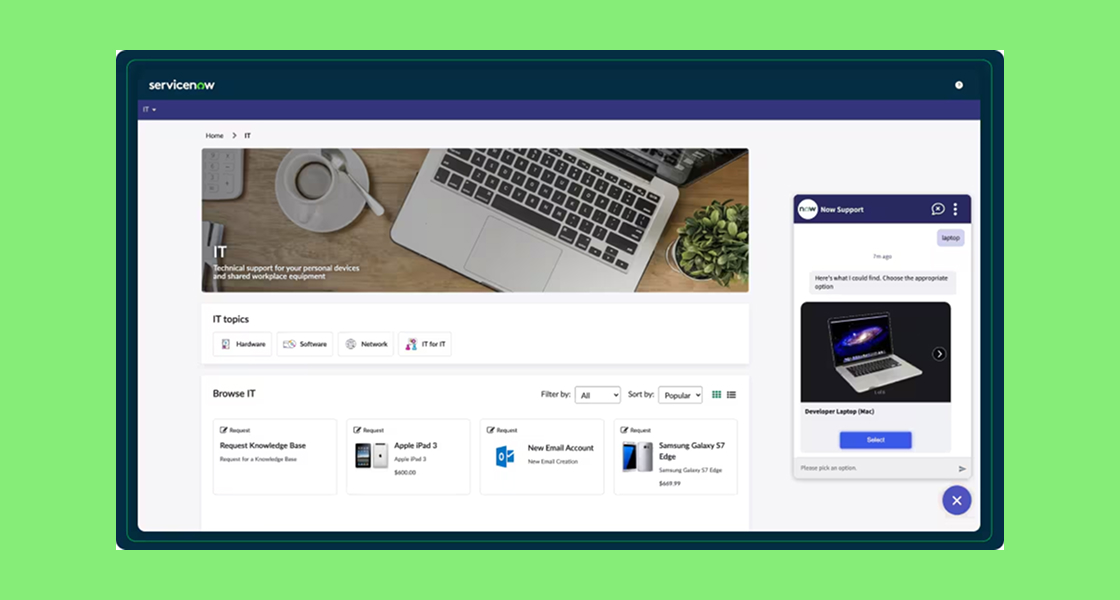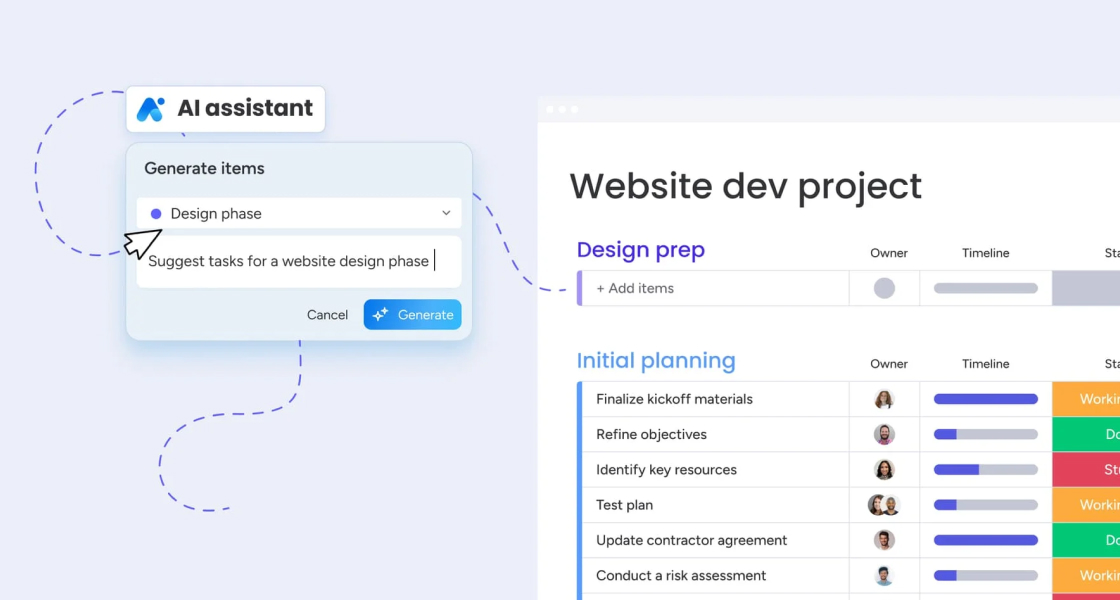Integrating AI and Machine Learning for Smarter ITSM Automation

Information Technology Service Management (ITSM) has undergone massive transformation over the past decade. The emergence of powerful platforms like Freshservice has already elevated how companies deliver and manage IT services. But the next leap for ITSM is being propelled by artificial intelligence (AI) and machine learning (ML), turning routine service desk operations into intelligent, adaptive, and highly automated workflows.
In today's digital-first world, speed and accuracy are paramount. End users expect quick resolutions to their issues, and IT teams face growing workloads necessitating more efficiency. Integrating IA, especially in established solutions like Freshservice, promises not only to automate repetitive tasks but also to drive smarter, data-driven outcomes across the service lifecycle.
This post will guide you through how Freshservice automation and advances in machine learning ITSM capabilities are shaping a new era of efficiency and service quality. We’ll explore AI-powered features such as intelligent ticket routing, predictive analytics, and automated remediation, while highlighting real-world benefits for business and IT teams.
Understanding the Role of AI in ITSM Platforms
Before diving into specific features, let's define what AI in ITSM truly encompasses. At its core, AI acts as an engine for automating decision-making, recognizing patterns, and learning from historical data. When applied to ITSM:
- AI can replace or augment human intervention for tasks like ticket classification, prioritization, and initial troubleshooting.
- Machine learning algorithms analyze vast datasets of incidents, changes, and requests, helping predict issues before they occur and offer solutions proactively.
- NLP (Natural Language Processing) enables understanding unstructured data—think email, chat, or freeform ticket descriptions—supercharging the ITSM chatbot and virtual agent experience.
Modern ITSM tools now embed these technologies deeply into the workflow, fundamentally rethinking how support teams operate. Let’s examine the major areas of AI impact.
AI-Powered Ticket Routing and Intelligent Ticketing System
One of the perennial challenges for service desks is ticket triage—assigning the right ticket, to the right agent or group, at the right time. Traditionally, this involved manual queue management, categorization errors, and bottlenecks.
Enter the intelligent ticketing system, where Freshservice AI features really shine:
- Machine learning analyzes historical tickets and determines the most probable category based on language cues, attachments, and context.
- AI in ITSM assesses agent skillsets, workload, ticket priority, and even location to direct tickets seamlessly to the optimal resolver group.
- The system predicts whether a ticket is likely urgent, based on language or key phrases (“outage,” “critical,” etc.), auto-flagging high-priority incidents for rapid action.
- Algorithms surface suggested solutions, knowledge base articles, or even previous tickets with similar symptoms, boosting first-contact resolution rates.
This approach slashes the time spent on manual review, eliminates misroutes, and ensures users quickly connect with the right expertise—speeding up ITSM and improving SLAs.
Conversational ITSM: The Power of AI Chatbots and Virtual Agents
AI-driven chatbots are quickly becoming the front line of enterprise support, available 24/7 to deflect common queries or requests without human intervention.
Freshservice integrate robust virtual agents that leverage Natural Language Processing (NLP), enabling them to:
- Understand end-user intent, even when queries are ambiguous.
- Initiate automated workflows, such as password resets, software installs, or FAQs retrieval.
- Escalate complex or sensitive issues seamlessly to human agents, with proper context handed over.
- Surveil sentiment analysis to detect frustrated or urgent users, triggering faster human intervention when needed.
- Continually learn from new interactions, refining their accuracy and breadth of response.
By automating initial contacts, these bots cut response times from minutes to seconds. According to Freshworks, organizations that deploy AI-powered chatbots report 30-40% reductions in ticket volumes handled by live agents, freeing team members to focus on critical or high-value tasks.
Predictive Analytics: Staying One Step Ahead
Perhaps the most compelling application of IA is its ability to forecast issues, enabling IT teams to move from reactive troubleshooting to proactive support. Here’s how predictive analytics deliver transformative value:
- By analyzing patterns in system logs, network traffic, or prior incident sequences, AI identifies precursors to outages or major disruptions. Teams receive early warnings and can act before business is impacted.
- ML models forecast resource utilization—such as virtual machines, storage, or bandwidth—helping IT predict when upgrades or scaling will be needed.
- Freshservice AI features now simulate how proposed changes might affect related services, illuminating downstream effects and reducing failed deployments.
- AI can correlate security ticket trends with known threat indicators, automatically escalating high-risk incidents for immediate containment.
With predictive analytics, ITSM evolves from simply responding to tickets into a strategic business partner, helping prevent problems before they disrupt normal operations.
Automated Remediation: From Detection to Resolution
AI doesn’t just alert staff to problems—today’s leading ITSM tools can initiate automated remediation based on learned patterns. Automated workflows in Freshservice bring together ticket recognition, knowledge base search, and system orchestration:
- When a known error is detected (such as a stuck process or failed batch job), the platform can automatically execute a remediation script or playbook—resolving incidents with zero manual effort.
- AI spots when standard remediation attempts are ineffective, alerting senior personnel and providing detailed diagnostics.
- ML models trigger follow-up actions, such as status updates, user communications, or RCA (root cause analysis) initiation after incidents close.
- Every resolution outcome is fed back into the machine learning system, continually enhancing future recommendations and automation accuracy.
This shift to end-to-end automation reduces mean time to resolve (MTTR), minimizes user frustration, and contributes to a more robust IT ecosystem.
Key Freshservice AI Features Transforming ITSM Automation
Freshservice stands out as a leading ITSM platform due to its constant innovation in AI and machine learning capabilities. Here are some its AI features that are making waves in modern IT operations:
- Leveraging supervised and unsupervised ML models, Freshservice automatically categorizes and prioritizes tickets, recommends solutions, and identifies emerging trends.
- A customizable chatbot framework, powered by NLP, capable of multi-channel support—web, mobile, and messaging—and seamless escalation.
- When agents handle live issues, Freshservice surfaces contextually relevant knowledge articles, historical ticket data, and next-step suggestions in real time.
- ML-driven dashboards that analyze workflow bottlenecks, SLA trends, and service health to guide continuous improvement.
- Advanced semantic search that ensures agents and users find the right information quickly, improving self-service adoption.
Together, these automation features minimize repetitive data-entry, speed up issue resolution, and fuel higher user satisfaction, all with less reliance on manual ITSM processes.
Practical Benefits for IT and Business Teams
It’s easy to get caught up in the technology, but what do these AI-powered advances really mean for organizations adopting Freshservice automation or similar platforms? Here are the concrete benefits:
- Tickets are triaged and routed instantly, with the right solutions presented up front, eliminating time wasted in queues or on unproductive investigations.
- Automation cuts down the volume of human-handled tickets, allowing teams to scale without proportional headcount increases.
- AI chatbots provide users with on-demand support, resulting in higher satisfaction and improved perception of IT service quality.
- Predictive analytics help IT prioritize investments—staffing, infrastructure, or security—based on real-world trends.
- Machine learning ensures that every incident, change, or request processed further sharpens system intelligence, supporting true continuous improvement.
Business leaders and IT staff alike gain actionable insights, making ITSM not just a supporting function but a force multiplier for business productivity and innovation.
Real-World Use Cases: How Organizations Are Leveraging AI in ITSM
Organizations across sectors—finance, healthcare, education, and tech—are realizing substantial gains from integrating AI in ITSM and leveraging Freshservice automation. Here are just a few examples to illustrate the transformation in action:
- A multinational bank deployed an intelligent ticketing system that uses ML to detect fraudulent patterns in IT incidents, automatically escalating potential breaches to its cybersecurity team.
- A university automated student support using an ITSM chatbot, fielding thousands of password resets, software install requests, and policy queries—leading to 50% faster response times during enrollment peaks.
- Predictive analytics in ITSM allowed a manufacturer to anticipate network failures based on IoT sensor logs, reducing critical downtime by up to 60% over six months.
- AI-powered ticket routing ensures that urgent clinical system issues are instantly escalated to on-call specialists, safeguarding patient care.
- Automated remediation scripts respond to POS system outages, rolling back software updates and notifying relevant store managers without any support desk agent involvement.
These cases highlight that the value of machine learning ITSM isn’t theoretical—AI is delivering measurable ROI and stronger IT-business alignment right now.
Planning for AI-Driven ITSM Success
While the advantages of integrating AI and ML with ITSM platforms are compelling, successful adoption requires careful planning:
- Machine learning thrives on quality data. Ensure your ticketing, incident, and change records are consistently logged and structured—this powers accurate AI recommendations.
- Educate IT and business stakeholders on the new capabilities, relieving any anxieties about automation “replacing jobs” by emphasizing improved service and freed-up capacity for higher-value work.
- Treat AI models as evolving assets. Regularly review outcomes, retrain models with new data, and fine-tune automations as workflows and business needs change.
- Build and test ITSM chatbots or virtual agents from a user-centric perspective, focusing on high-volume repetitive requests where automation offers clear wins.
- As adoption accelerates, ensure your platform architecture, whether Freshservice or another ITSM tool, can scale to handle increasing automation workloads and integrations.
Lastly, partner with technology vendors who offer robust AI integration roadmaps and support. Starting with smaller automation pilots, then scaling systematically, enables both quick wins and sustainable progress.
Conclusion: Embracing the Intelligent Future of ITSM Automation
Integrating IA is not just about adding new “smart” features; it’s about fundamentally redesigning how IT delivers value to the business. Freshservice automation—together with machine learning ITSM advances and intelligent ticketing system capabilities—takes organizations beyond legacy service desk models. From AI-powered ticket routing to predictive analytics and fully automated remediation, these technologies drive higher agility, lower costs, and happier users.
As ITSM platforms like Freshservice continue to invest in AI capabilities, the line between technology support and true business enablement will blur even further. Forward-thinking IT leaders should be exploring these AI features today to build the smart, adaptive IT operations of tomorrow.
Ready to unlock the benefits of AI-driven ITSM for your organization? Contact us to learn how our automation experts can help you automate your processes and increase efficiency.















